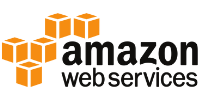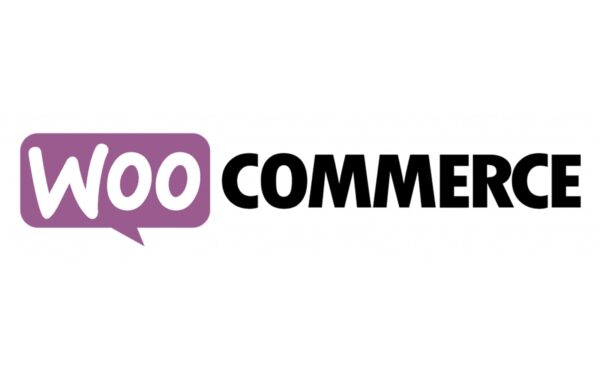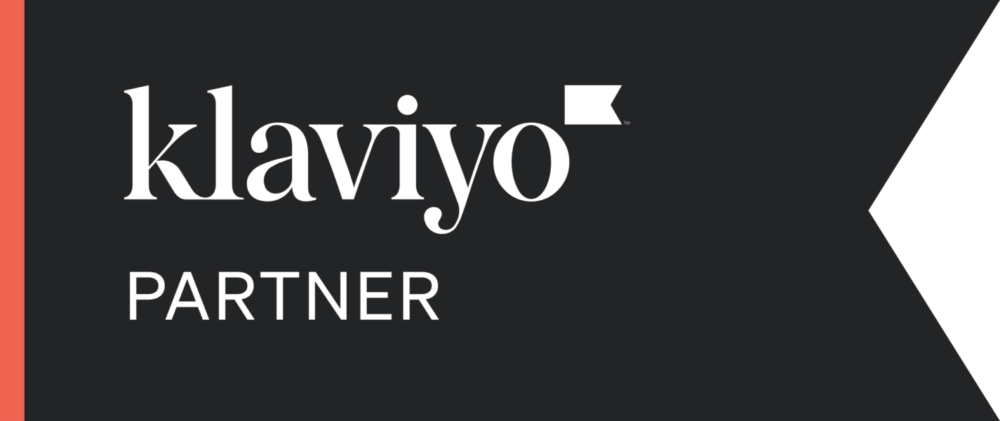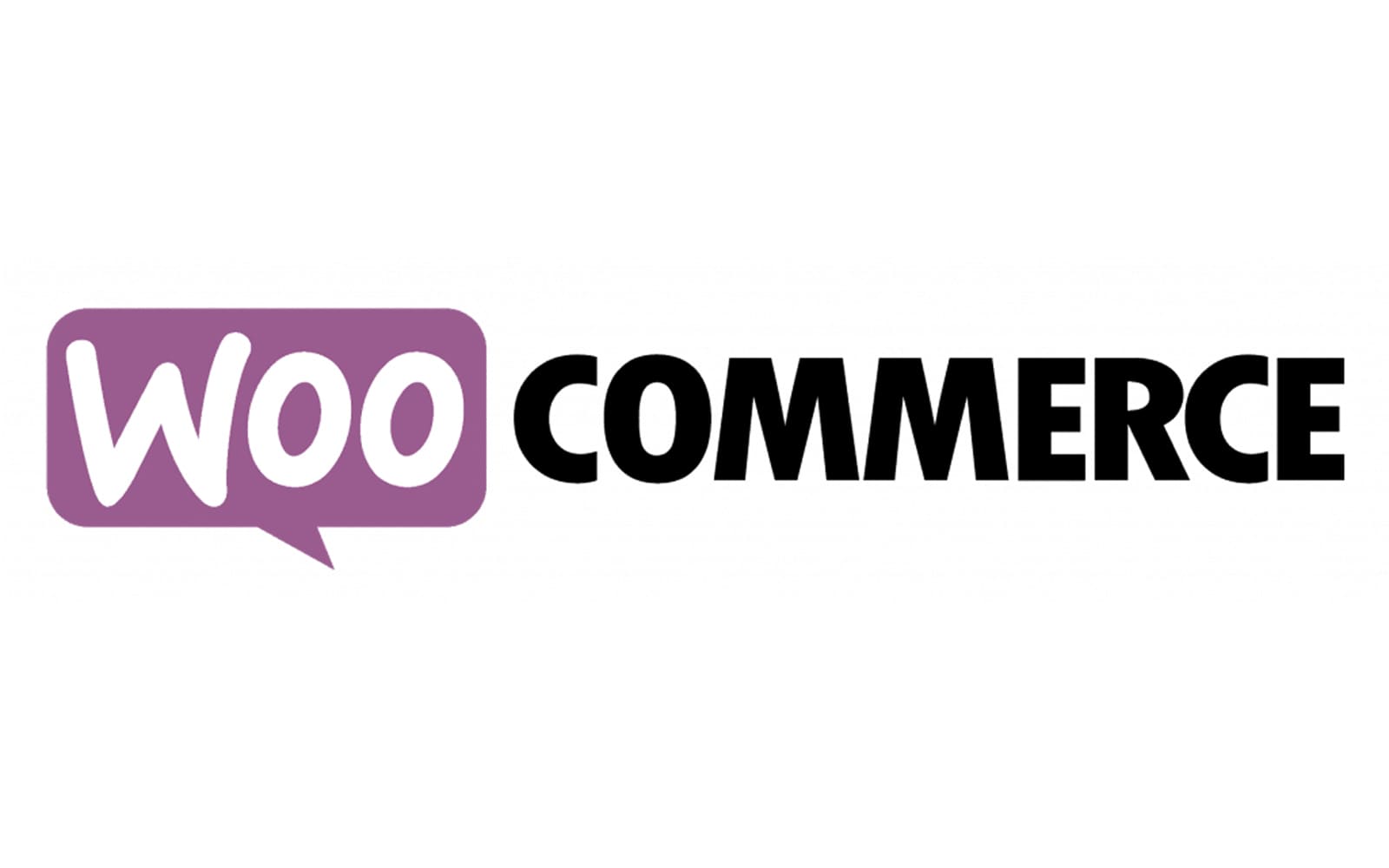The Impact of Web Hosting on Website Performance and User Experience
Welcome to the digital realm, where websites serve as the virtual storefronts of businesses and the pulsating cores of online endeavours. Behind this alluring exterior is the unsung hero of our online extravaganza: web hosting—the sturdy backbone that not only sustains but also nurtures and, ultimately, shapes the user experience.
As we embark on this journey through the digital universe, let us uncover the mysteries of website hosting, delve deeply into its significance for the user experience, and explain the profound influence and numerous benefits of choosing the best web hosting company.
What is website hosting, and why is it important for the user experience?
Picture this: You’ve meticulously developed a website packed with interesting content, eye-catching imagery, and a seamless user interface. However, without the right hosting infrastructure, all your dedication could potentially go to waste. Website hosting is similar to the piece of land on which you build your ideal home—it provides the foundation, space, and necessary resources for your website to thrive. In essence, a comprehensive website hosting service empowers you to publish your website on the boundless expanse of the internet.
When users type your domain name into their browsers, the hosting server fetches and delivers your website’s content, seamlessly connecting your digital presence to your target audience. But why is this seemingly technical feature so important to the user experience, you might wonder? Consider the frustration of encountering a sluggish, slow-loading website or one that occasionally vanishes into the abyss of downtime. Such experiences can quickly reduce user experience and satisfaction, discouraging potential visitors from engaging with your content or purchasing your products.
This is precisely where the intrinsic value of website hosting reveals itself. A reliable hosting solution not only ensures swift loading times and uninterrupted accessibility but also lays the groundwork for a seamless and gratifying user journey, fostering trust, credibility, and loyalty among your audience. In the competitive landscape of the digital realm, where every click counts and every second matters, choosing the right website hosting provider isn’t merely a choice—it’s a strategic imperative.
By partnering with a reputable hosting service provider, like Electric Egg and CloudNest, who understands your business’s unique needs and goals, you can gain access to a world of possibilities, allowing your website to stand out among its competitors in the digital world while providing unparalleled user experiences that resonate and endure.
What are the benefits of premium website hosting?
The pinnacle of web hosting excellence, premium website hosting stands apart from standard hosting plans with its cutting-edge features, enhanced performance, and unmatched support. Tailored to meet the exacting needs of businesses or individuals grappling with high traffic volumes, mission-critical websites, or intricate applications, this elite hosting solution serves as the cornerstone of digital success. But what advantages does it bring?
In essence, premium website hosting is meticulously crafted to deliver a comprehensive and superior hosting experience, empowering businesses and individuals with the reliability, agility, and assistance requisite for thriving in the fiercely competitive online landscape. While the price tag of premium hosting may surpass that of standard plans, the array of benefits and added value it bestows often serves as a compelling justification for discerning customers seeking nothing less than the pinnacle of hosting solutions. Let’s take a closer look at some of the main benefits of premium website hosting.
1. Loading Speed:
The loading speed of a website stands as a pivotal metric, wielding direct influence over both the user experience and search engine rankings. In the vast digital landscape, where attention spans are fleeting and competition is fierce, the swiftness with which a website loads can make or break its success. Enter premium website hosting—the very cornerstone of accelerated loading times and enhanced performance.
Premium web hosting providers excel at optimising server resources, leveraging cutting-edge technologies, and implementing streamlined content delivery strategies to ensure that every millisecond counts. By meticulously fine-tuning server configurations, employing advanced caching mechanisms, and strategically distributing content across global networks of servers, these providers minimise latency and deliver content with unprecedented speed and efficiency.
The ramifications of swift-loading websites extend far beyond mere user satisfaction—they resonate deeply with search engines as well. In the ever-evolving realm of search engine optimisation (SEO), loading speed holds immense significance. Search engine algorithms prioritise fast-loading pages, recognising them as a hallmark of quality and relevance. Consequently, websites hosted on premium platforms enjoy heightened visibility and are more likely to ascend the ranks of search engine results pages (SERPs), attracting greater organic traffic and engagement in the process.
In essence, the symbiotic relationship between website loading speed, user experience, and SEO underscores the importance of investing in top-tier web hosting solutions. By prioritising performance and ensuring blazing-fast loading times, businesses can forge a compelling online presence that not only captivates visitors from the outset but also garners favour with search engines, paving the way for sustained growth, enhanced visibility, and unparalleled success in the competitive online landscape.
Pro tip: Large images and media files often significantly reduce website speed. Compressing these files to minimise their size—without drastically compromising quality—or opting for external media hosting, can significantly enhance loading times.
2. Uptime and Reliability:
Uptime and reliability form the cornerstone of a thriving online presence, serving as vital pillars that uphold the integrity and accessibility of your website. In the digital realm, where every second counts and user expectations run high, the importance of quality web hosting cannot be overstated. A robust hosting infrastructure stands as a steadfast guardian, tirelessly ensuring that your website remains accessible to visitors around the clock, with downtime reduced to near-zero levels.
At the heart of outstanding web hosting is a dedication to continuous reliability. Premium hosting services use cutting-edge technologies, redundant systems, and thorough monitoring processes to protect against potential disruptions and provide uninterrupted service. By methodically coordinating fail-safe procedures and proactive maintenance routines, these providers reduce the danger of downtime, ensuring your website’s availability and performance even during heavy traffic periods or unexpected technical issues.
The advantages of uptime and dependability go far beyond basic accessibility—they affect every aspect of your online presence. A continually available website instills confidence and reliability in users, creating trust and loyalty, which are essential in today’s competitive digital market. Furthermore, by avoiding the financial loss and reputational damage associated with inaccessible or unreliable websites, dependable hosting protects businesses from unexpected setbacks, allowing them to stay on track for success.
Uptime and reliability are equally important in the world of SEO. Search engines rank websites higher when they offer flawless user experiences, while they rank websites with sporadic outages or subpar performance lower. By working with a reputable hosting company, you not only strengthen your website’s durability but also increase its visibility and credibility in the eyes of search engines, positioning it for higher ranks and more organic visitors.
Uptime and reliability are critical components of digital success, supporting the confidence, legitimacy, and performance of your online efforts. Businesses that invest in quality web hosting can turn their websites into strong digital assets capable of weathering any storm and capitalising on every opportunity that the online world presents.
Pro tip: To maximise web uptime and ensure your site remains accessible, invest in a reliable hosting service with a proven track record of stability and uptime guarantees.
3. Security:
In today’s dynamic digital terrain, where cyber threats lurk at every corner, the importance of robust security features offered by top-tier web hosting cannot be overstated. A secure hosting environment acts as an impregnable fortress, fortified with an arsenal of cutting-edge defences designed to repel malicious actors and safeguard sensitive data with unwavering vigilance.
At the forefront of this defence are SSL certificates, which encrypt data transmitted between the user’s browser and your website, shielding it from prying eyes and ensuring confidentiality. Coupled with state-of-the-art firewalls, which serve as virtual barricades against unauthorised access and malicious intrusions, these security measures form a formidable barrier against cyber threats, mitigating potential attacks before they can breach your digital defences.
Regular security updates are another essential for any secure hosting environment, as they ensure that vulnerabilities are detected and corrected as soon as possible to prevent hackers from exploiting them. By staying up-to-date on the latest security patches and updates, hosting providers exhibit a proactive commitment to protecting their client’s assets and maintaining the integrity of their online presence. However, the advantages of a safe hosting environment go far beyond basic protection; they resonate deeply with your target audience, instilling trust and confidence in your business.
In an era of headline-grabbing data breaches and widespread cybercrime, consumers are becoming increasingly concerned about the security of the websites they visit, as well as the safety of their personal information. Prioritising security and investing in a secure hosting solution reassures your audience of your dedication to their privacy and safety while also distinguishing yourself as a trustworthy custodian of their data.
It’s also worth mentioning that, when it comes to SEO, security plays a pivotal role. Search engines prioritise secure websites in their rankings, favouring those fortified with SSL certificates and robust security measures. By enhancing the security of your hosting environment, you not only bolster your website’s defences against cyber threats but also elevate its visibility and credibility in the eyes of search engines, positioning it for greater prominence in search results and increased organic traffic.
The security measures offered by reputable web hosting are vital assets in today’s digital landscape, acting as a barrier to cyber attacks and a beacon of trust for your audience. By investing in a safe hosting environment, businesses can strengthen their online presence, protect sensitive data, and develop long-term relationships based on trust, integrity, and peace of mind.
Pro tip: Regularly back up your website’s data and files. In case of a security breach, you’ll be able to restore your site quickly. Ensure backups are stored in a secure remote location and not just directly on your web server.
4. Scalability:
The scalability of premium web hosting refers to its ability to allow a website to easily expand in response to rising demand. Imagine your website witnessing a sudden rise in traffic as a result of a successful marketing campaign, or perhaps the increasing popularity of your products or services. Without scalable hosting, this surge may overload your website’s resources, resulting in delayed loading times, downtime, or even crashes. However, with scalable hosting, resources can be effortlessly adjusted to meet additional demand without compromising performance.
Scalable hosting resources include a variety of components, such as increased server capacity, bandwidth, and storage space. When your website receives more traffic or your business grows, these resources may be readily scaled up to match the increased demand. For example, if your website requires extra processing power to manage an increase in traffic, the hosting company might allocate additional server resources to ensure smooth functioning. Similarly, if you require extra bandwidth to accommodate increased data transfer rates or more storage space to store additional content, a scalable hosting solution may meet these needs while maintaining the user experience.
In essence, a premium hosting company that enables scalability allows your website to develop naturally alongside your business, free of technical constraints or performance bottlenecks. This ensures that your website stays responsive, dependable, and available to consumers, regardless of traffic fluctuations or business expansion plans. Investing in scalable web hosting allows you to future-proof your online presence and ensure that your website can adapt to evolving needs and possibilities in the ever-changing digital ecosystem.
5. Support and Maintenance:
Behind every smooth-running website is a strong support and maintenance infrastructure that serves as the unsung hero of digital success. Quality web hosting is more than just server space; it includes a variety of services that ensure your online presence runs smoothly and for years to come. At the heart of this infrastructure is responsive customer support, which is available to help with technical issues, troubleshoot problems, and provide fast answers to keep your website running smoothly.
A hosting provider committed to excellence understands the importance of proactive and timely support and maintenance. They go beyond the call of duty to anticipate and address potential issues before they escalate, ensuring uninterrupted service and an unparalleled user experience. Whether it’s resolving server-related issues, optimising performance, or implementing security patches, their dedicated team of experts stands ready to assist whenever you need it.
Regular maintenance is the cornerstone of sustained website performance. From server optimisations to security updates, these routine tasks are essential for protecting your website against cyber threats, improving loading speeds, and enhancing overall functionality. By entrusting these responsibilities to a hosting provider with a proactive approach to support and maintenance, you can rest assured that your online presence remains secure, reliable, and resilient in the face of evolving challenges. Choosing a hosting provider with a proactive approach to support and maintenance is more than just a prudent investment—it’s a strategic decision that lays the foundation for long-term success and reliability.
By prioritising quality support and proactive maintenance, you not only ensure the optimal performance of your website but also safeguard your reputation and credibility in the eyes of your audience. In the competitive landscape of the digital realm, where every click counts and user expectations run high, partnering with a hosting provider that prioritises your success is essential for staying ahead of the curve and thriving in the ever-evolving online ecosystem.
Pro tip: Keeping your website core, plugins and themes up to date is an important element of website security. Updates often include security patches for vulnerabilities that have been discovered since the last version.
What are the key factors that influence website performance?
The success of a website is dependent on its performance. From user satisfaction to search engine visibility, a variety of elements influence the effectiveness of a website’s operations. When it comes to premium hosting, companies prioritise providing great speed, dependability, and overall performance for their customers. However, obtaining and maintaining top performance necessitates a thorough understanding of the numerous aspects influencing website operation.
Whether you’re a business owner looking to invest in high-quality hosting or a web developer tasked with optimising a premium website, understanding these criteria is essential for getting the most out of your website hosting investment. Let’s take a look at the key factors that influence website performance in the context of premium hosting solutions.
1. Server Location:
A server’s geographical location has a significant impact on website performance. When a person visits a website, the physical distance between their location and the server that hosts the website influences the speed at which data is sent, which directly affects the website’s loading time. Latency, or delayed access to content, can result in a less-than-optimal user experience.
To reduce latency and improve the user experience, it is critical to strategically choose the server location for the website. Website owners can reduce latency and increase data transfer speeds by selecting a server location that is geographically closer to their intended audience. This systematic approach to server location optimisation can considerably improve the website’s overall responsiveness and loading times, regardless of the users’ geographic location.
Optimising server location is critical for ensuring that website content reaches consumers quickly and efficiently, increasing user satisfaction and improving website performance. By properly aligning server locations with the intended audience, website owners may provide users with a seamless and responsive browsing experience, regardless of their geographical location.
Electric Egg and CloudNest specialise in website hosting, boasting servers across various geographical locations to enhance performance and user experience by reducing latency and ensuring faster load times for visitors worldwide.
2. Caching:
Caching, as a key factor influencing website performance, is at the heart of modern web architecture, driving a variety of critical optimisations. Its importance stems not only from its capacity to reduce loading times but also from its wider impact on different areas of online operation. One of the key benefits of caching is its capacity to scale.
By minimising server load and reducing the need for repetitive data retrieval, caching enables websites to handle increases in traffic volume more efficiently while maintaining performance. This scalability is especially important for dynamic platforms with variable user activity, ensuring consistent user experiences even during peak usage times. Furthermore, caching has a big impact on SEO efforts.
Search engines prefer websites with fast loading times and responsive designs, which caching directly affects. By delivering cached versions of frequently viewed information, websites can improve page speed metrics, user engagement, and, as a result, search engine results. Reduced load times can also contribute to decreased bounce rates, which signal to search engines that the site contains quality and relevant material, hence improving its SEO performance.
In addition to scalability and SEO benefits, caching enables effective worldwide content delivery. Content delivery networks (CDNs) use caching to distribute copies of website assets across servers in several geographic locations. This distributed caching technology decreases latency and provides timely content delivery to users worldwide, regardless of location. Caching improves the overall surfing experience by reducing the distance between users and content, resulting in higher user happiness and retention.
Furthermore, caching plays an important role in improving website security. By caching static material at the network’s edge, CDNs can reduce the effect of possible security risks like DDoS attacks. By distributing cached material directly from edge servers, CDNs can absorb harmful traffic while protecting the primary server from potential disruptions or data breaches. This proactive security strategy improves websites’ resilience to cyber assaults, protects critical data, and ensures operational continuity.
To summarise, caching is a key component of website performance improvement, influencing scalability, SEO effectiveness, worldwide content delivery, and security. Websites that properly apply caching technologies can not only improve loading times, but also improve user experiences, strengthen their online visibility, and reduce potential hazards. Embracing caching as a web infrastructure cornerstone is critical for businesses looking to succeed in today’s competitive digital market, where performance and dependability are paramount.
Pro tip: Implementing efficient caching policies for static resources like images, CSS, and JavaScript files can lead to substantial improvements in site performance.
3. Content Delivery Network (CDN):
In our increasingly interconnected digital landscape, a Content Delivery Network (CDN) emerges as a critical infrastructure component, serving as a global distribution system for web content. Its major goal is to replicate static assets such as photos, CSS files, and scripts across a network of servers located strategically around the world. A CDN significantly reduces the physical distance between the hosting server and end-users via this intricate network of servers, resulting in faster loading times and a better user experience.
The essence of a CDN is its dispersed approach to content delivery. A CDN ensures that users can access material quickly and seamlessly, no matter where they are, by distributing copies of website assets to servers in several geographic zones. This global distribution approach helps to reduce latency and network congestion, which are common problems with traditional information delivery systems. As a result, viewers from all over the world have constant, fast access to all of your website’s information.
The benefits of using a CDN go beyond increased performance. A CDN improves website uptime and scalability by reducing pressure on the origin server and managing traffic distribution more efficiently. During times of high demand or unexpected traffic spikes, CDN servers can absorb the pressure, assuring continuous access to content without affecting performance. Scalability is especially important for worldwide businesses or those with a rapidly growing customer base.
Furthermore, a CDN plays an important role in improving website security and resilience to cyber assaults. CDNs protect content delivery channels with features such as DDoS protection and SSL encryption, reducing the risk of potential attacks and data breaches. A CDN strengthens your website’s overall security posture by acting as a protective shield between the origin server and external threats, inspiring user confidence, and protecting the integrity of sensitive data.
A CDN is more than just a means for faster content delivery; it offers a comprehensive strategy for improving website performance, dependability, and security on a worldwide scale. Businesses can employ a CDN’s distributed design to assure consistent, high-quality user experiences across varied geographic locations, strengthen their resilience to cyber attacks, and position themselves for success in an increasingly linked digital economy.
Pro tip: Cloudflare’s CDN offering stands out for its extensive global network, designed to speed up websites by caching content closer to users, thus reducing loading times significantly. It also emphasises security, providing protection against DDoS attacks, data breaches, and other online threats, making it a comprehensive solution for enhancing website performance and safety.
4. Traffic Management:
Traffic management is an essential component of website hosting, especially for platforms that see varying amounts of user involvement. The unpredictable nature of online traffic, characterised by abrupt spikes caused by viral content or marketing efforts, places tremendous strain on server resources and overall performance. Effective traffic management requires the strategic deployment of multiple approaches, the most important of which are load balancing and server scaling, to intelligently disperse incoming traffic and reduce the burden on server infrastructure.
Load balancing emerges as a key principle in traffic management, acting as a technique to evenly balance incoming requests over different servers. Load balancers ensure optimal resource utilisation by dynamically directing traffic depending on criteria such as server load and geographic proximity, preventing any single server from becoming overwhelmed during times of high activity. This dynamic traffic distribution not only improves performance but also increases the website’s dependability and availability, even during sudden surges in user demand.
Furthermore, server scaling develops as a supplementary method in traffic management, allowing hosting infrastructure to dynamically adjust capacity in response to changing traffic volumes. Servers can be supplied or retired on-demand using technologies like auto-scaling, scaling up to handle higher traffic volumes and down during periods of low demand. This elasticity in server capacity not only optimises resource utilisation but also reduces operational expenses by ensuring that infrastructure resources closely match real consumption patterns.
A well-managed traffic system stands out for its ability to remain accessible and responsive even during periods of high user activity. Websites that adopt robust traffic management systems may efficiently negotiate the ebb and flow of online traffic, providing consistent and reliable user experiences regardless of demand changes. Furthermore, a proactive approach to traffic management increases the durability of the hosting infrastructure, lowering the chance of downtime or performance deterioration during important periods.
Traffic management is a critical component of website hosting, providing peak performance, dependability, and scalability in the face of fluctuating user engagement levels. Businesses that embrace approaches like load balancing and server scaling can proactively manage the problems provided by shifting traffic patterns, ensuring the integrity of their online presence and increasing user pleasure in an ever-changing digital landscape.
Pro tip: For added resilience, set up automatic failover systems to reroute traffic away from troubled/overloaded servers, ensuring uninterrupted service.
5. Hardware and Software Optimisation:
In the world of website hosting, obtaining peak efficiency requires rigorous optimisation of both hardware and software components. Each aspect has a significant impact on a website’s performance and responsiveness, necessitating a harmonious combination of robust physical infrastructure and efficient software processes.
Maintaining cloud-based servers demands a proactive approach, including regular updates and patches to protect against vulnerabilities, along with implementing robust security measures like firewalls and encryption. Performance should be constantly monitored using cloud tools to track key metrics, ensuring optimal operation. A critical aspect of maintenance is establishing a reliable backup and disaster recovery strategy, including regular data snapshots and testing recovery plans. Additionally, managing costs by monitoring resource usage helps avoid unnecessary expenses, while scalability planning ensures the infrastructure can handle varying loads. Compliance with regulations and data privacy laws is mandatory, involving regular audits and configurations to meet standards. An incident response plan is essential for quickly addressing breaches or failures, minimising downtime. Continuous optimisation and staying informed on cloud technologies are key to effective maintenance, necessitating regular training and updates.
On the software front, efforts are focused on fine-tuning codes, databases, and server configurations to maximise efficiency while minimising delay. This includes optimising the website’s codebase for speed and efficiency, using techniques like code minification, caching, and asynchronous loading to reduce page load times and enhance overall performance. Database optimisation entails optimising queries, indexing frequently accessed data, and using caching technologies to speed up data retrieval and processing. Furthermore, optimising server configurations, such as web server settings, PHP configurations, and caching rules, aids in resource allocation and faster server response times.
Achieving optimal website performance involves several key elements. First, maintaining the virtual servers is crucial. This includes tasks such as updating the operating system, creating regular snapshots for backup purposes, and planning for disaster recovery scenarios to ensure data integrity and availability. Additionally, attention must be given to your website’s database and files to ensure they are optimised for performance and security. Implementing caching mechanisms can significantly reduce load times by storing frequently accessed data in temporary storage.
Using a Content Delivery Network (CDN) further enhances performance by distributing content across multiple servers worldwide, reducing latency, and improving load times for users regardless of their geographic location. By investing in managed website hosting on cloud-based servers, website owners may create an environment favourable to providing quick, dependable, and smooth user experiences, increasing user satisfaction, and driving business success.
6. Security Features:
Beyond simply protecting against cyber threats, incorporating strong security elements into web hosting infrastructure plays a critical role in moulding a website’s overall speed and reliability. While the fundamental goal of security measures like SSL certificates, firewalls, and intrusion detection systems is to secure sensitive data and prevent malicious assaults, their influence goes far beyond protection to include trustworthiness, dependability, and operational continuity.
SSL certificates, for example, encrypt data communicated between the user’s browser and the web server, ensuring that sensitive information such as login credentials, payment details, and personal information is secure while in transit. This encryption not only protects user privacy but also builds trust and confidence in website visitors by telling them that the website is committed to preserving their data. Furthermore, SSL certificates are rapidly playing a role in search engine ranking algorithms, with search engines prioritising secure websites in their search results, increasing visibility, and driving organic traffic.
Firewalls and intrusion detection systems are proactive defence measures that monitor network traffic and detect and stop suspicious or malicious actions in real-time. These security measures reduce the danger of data breaches, unauthorised access, and other cyber assaults by preventing potential security threats from compromising the website’s integrity. By preventing downtime due to security events, this proactive strategy not only safeguards sensitive data but also increases the website’s overall reliability and uptime.
Secure websites are intrinsically less vulnerable to downtime caused by criminal activity, ensuring continuous user access and a favourable browsing experience. By investing in strong security measures, website owners may build confidence in their users, increasing their faith in the website’s trustworthiness and integrity. Furthermore, secure websites are better able to endure the rigours of modern cyber attacks, protecting against reputational harm, financial losses, and legal liabilities caused by security breaches.
To sum up, security measures in web hosting infrastructure have a significant impact on a website’s overall performance, reliability, and trustworthiness. SSL certificates, firewalls, and intrusion detection systems not only protect sensitive data but also help to provide a secure and resilient online presence. Prioritising security measures allows website owners to protect their reputation, increase user trust, and ensure continuous access to their digital assets, ultimately driving business success in an increasingly interconnected and threat-prone digital ecosystem.
Are there different types of hosting?
There are several types of hosting services available, each catering to different needs and requirements based on factors such as website traffic, resources, and level of control. Here’s an overview of some common types of hosting:
Shared Hosting:
Shared hosting is like living in an apartment building where multiple residents share common resources. In this type of hosting, multiple websites share the same server and its resources, making it a cost-effective option for small to medium-sized websites. While it’s budget-friendly, the shared environment may impact performance during traffic spikes.
Virtual Private Server (VPS) Hosting:
VPS hosting provides users with their own virtual space on a shared server. It bridges the gap between shared and dedicated hosting, offering more control and resources. Each VPS operates independently, allowing for a more customised and scalable experience. It’s suitable for websites that have outgrown shared hosting but don’t require a dedicated server.
Dedicated Hosting:
Dedicated hosting is akin to owning a private estate. In this setup, a single server is dedicated to a single website or client. This option provides maximum control, customisation, and performance capabilities. Dedicated hosting is ideal for large websites with high traffic volumes and resource-intensive applications that demand exclusive server resources.
Cloud Hosting:
Cloud hosting is a dynamic and scalable solution that harnesses the power of multiple interconnected servers. It offers flexibility and resource scalability, allowing users to pay for the resources they consume. Cloud hosting is known for its reliability, as websites can seamlessly scale resources based on demand. It’s suitable for businesses with fluctuating or unpredictable traffic.
Managed WordPress Hosting:
Managed WordPress hosting is tailored specifically for WordPress websites. It combines hosting services with specialised WordPress management. The hosting provider takes care of technical aspects such as updates, security, and performance optimisation, allowing users to focus on content creation and website management. It’s an excellent choice for WordPress enthusiasts who prefer a hassle-free experience.
How can Electric Egg help?
Hosted on our Virtual Private Servers, our comprehensive website hosting solutions offer a suite of benefits geared towards enhancing website security, optimising performance, and elevating the user experience of your website. With our commitment to maintaining 99.9% server uptime, your website is guaranteed to be accessible and operational round-the-clock, ensuring uninterrupted service and peace of mind for you and your visitors.
As a part of our standard hosting package, we provide a range of additional features to bolster your website’s performance and security. This includes SSL certification, which not only safeguards your website’s data but also contributes to its visibility in search engine rankings, enhancing its online presence.
Our server-optimised cache tools ensure lightning-fast loading speeds for returning visitors, enhancing user engagement and satisfaction. Moreover, we offer remote scheduled backups to Amazon’s secure servers and complimentary emergency website recovery and restoration services in the event of a security breach, providing added assurance and protection for your digital assets.
Additionally, our integration with the Cloudflare Content Delivery Network (CDN) optimises server response times for visitors worldwide, improving overall website performance and accessibility. Furthermore, our focus on page speed optimisation aligns with modern browser standards, ensuring seamless and efficient browsing experiences for your audience.
Elevate your website’s performance and security with our Virtual Private Server hosting solutions. With guaranteed 99.9% server uptime, SSL certification, lightning-fast loading speeds, and robust backup and recovery options, your website is in safe hands. Join our VPS family today and unlock the potential for an exceptional online presence.
Our Final Thoughts
In this journey through the intricacies of web hosting, we’ve unveiled the secrets behind loading speed, uptime, security, scalability, and support—the pillars that uphold an exceptional user experience. From the geographical nuances of server locations to the intricacies of server and software optimisation, we’ve navigated the digital waters together.
Choosing the right web hosting provider is not just a technical decision; it’s a strategic move that impacts your website’s success. As you embark on this digital voyage, armed with insights into the types of hosting and the factors influencing website performance, may your website thrive in the vast online expanse. The journey continues, and the digital horizon beckons. May your website be swift, secure, and unforgettable!


















